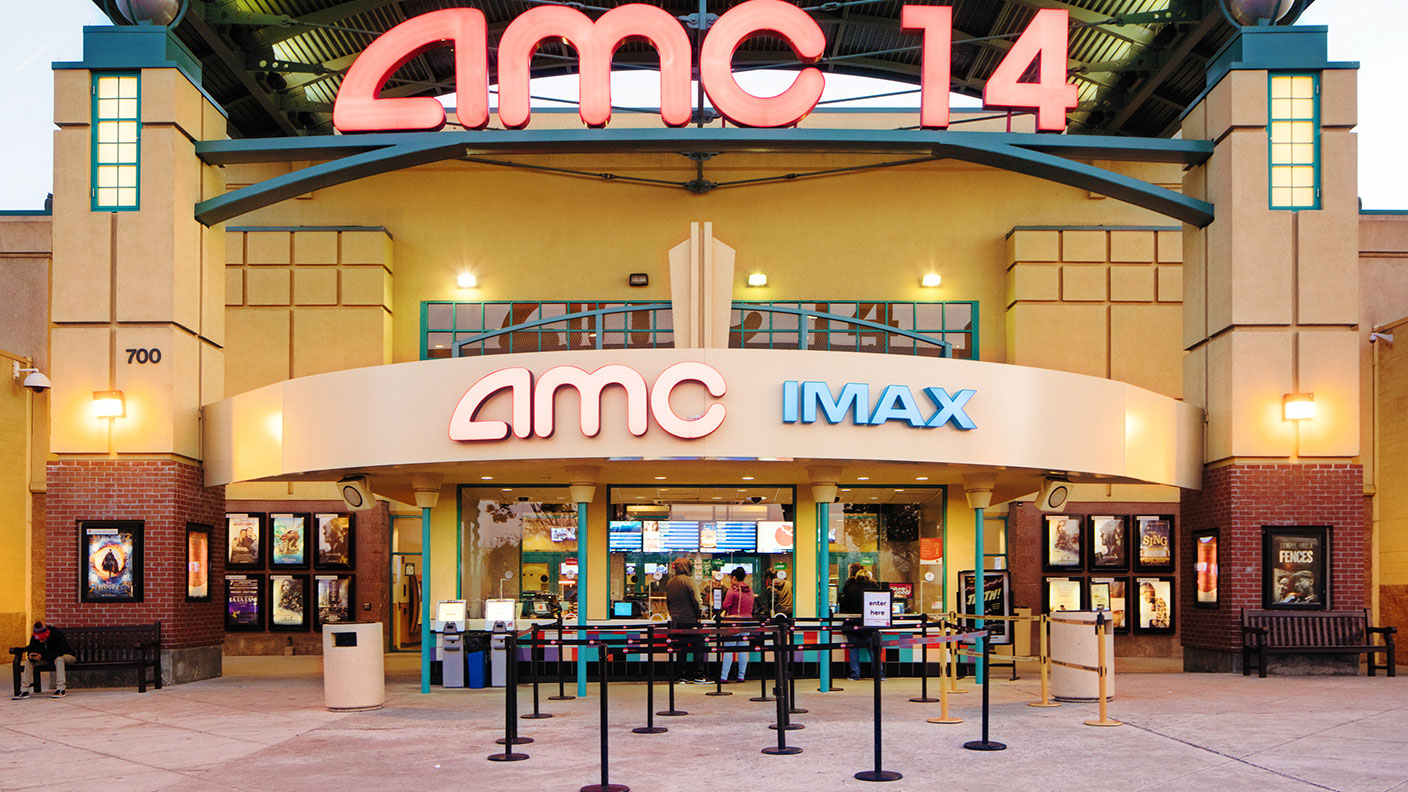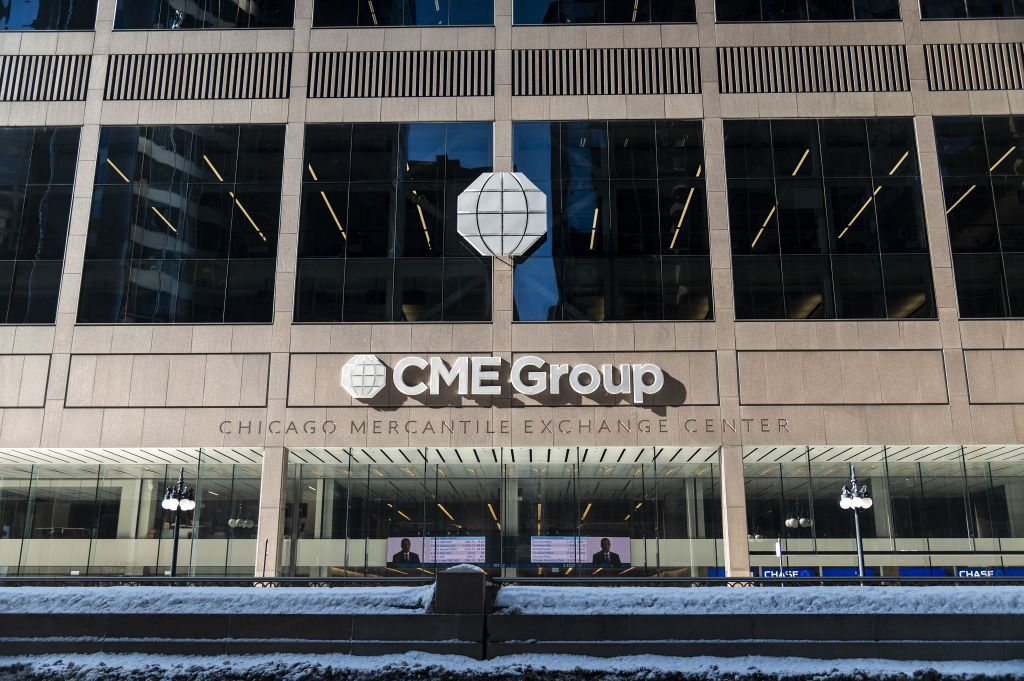How to short AMC shares
US cinema chain AMC is the latest meme stock and is now absurdly overvalued, says Matthew Partridge, Here's how to play it.


Get the latest financial news, insights and expert analysis from our award-winning MoneyWeek team, to help you understand what really matters when it comes to your finances.
You are now subscribed
Your newsletter sign-up was successful
Want to add more newsletters?

Twice daily
MoneyWeek
Get the latest financial news, insights and expert analysis from our award-winning MoneyWeek team, to help you understand what really matters when it comes to your finances.

Four times a week
Look After My Bills
Sign up to our free money-saving newsletter, filled with the latest news and expert advice to help you find the best tips and deals for managing your bills. Start saving today!
One of the key trends of the past six months has been the rise of “meme stocks” – shares that have soared as a result of being promoted on the wallstreetbets forum on Reddit, or other similar sites. The most prominent of these is GameStop, which is still trading at over ten times the level it had reached on 1 January 2021; at one stage this year it was up by nearly 3,000%. The other company that has recently become a meme stock is US cinema chain AMC Entertainment Holdings (NYSE: AMC), currently up approximately 25-fold from its level at the start of the year.
Given that AMC makes its money from operating 1,000 cinemas across the world, mainly in the United States and Europe, it is no surprise that the company’s shares have bounced. Countries around the world have loosened Covid-19 restrictions that had previously forced cinemas to close or operate at reduced capacity. Indeed, around half of US states have effectively removed all restrictions.
AMC'S problems pre-date the pandemic
MoneyWeek
Subscribe to MoneyWeek today and get your first six magazine issues absolutely FREE

Sign up to Money Morning
Don't miss the latest investment and personal finances news, market analysis, plus money-saving tips with our free twice-daily newsletter
Don't miss the latest investment and personal finances news, market analysis, plus money-saving tips with our free twice-daily newsletter
Note, however, that even before the lockdowns were imposed AMC was struggling owing to its decision to take on a large amount of debt to expand its business by buying up its competitors at a premium. Even in 2019, the year before the pandemic, the group lost money. While it has taken advantage of the recent surge in price to sell new shares and reduce debt with the proceeds, this problem still lingers.
Meanwhile, AMC’s post-pandemic path to profitability is complicated by the fact that the rise of streaming services such as Netflix is eroding the power of cinema chains in their negotiations with content creators. In addition to producing a lot of top-quality in-house content, the streaming services are also paying large sums of money to buy exclusive rights to the latest films from studios. While most films will probably still debut in cinemas, the traditional three months of exclusivity that was the norm pre-Covid-19 looks increasingly under threat, with studios reducing this to 45 and even 30 days.
Perhaps the most compelling reason to be sceptical about AMC is that due to the recent explosion in its share price it looks extremely expensive. Indeed, AMC trades at 5.2 times 2022 sales, compared with a 2022 price-to-sales ratio of less than 0.5 at Cineworld. Even if you take into account the level of debt, AMC still looks a lot more expensive, trading at six times enterprise value (EV: market capitalisation plus debt), compared with Cineworld’s twice EV.
Of course, as I found out the hard way with GameStop, even wildly overvalued companies can still appreciate. But with AMC now down by 30% from its recent high, it seems that investors’ enthusiasm has cooled. So I suggest shorting it at £48 per $1 once its price falls below $45. Cover your short once it hits $65, giving you a possible downside of £960.
Trading techniques... contracts for difference
Most spread-betting websites also offer contracts for difference (CFDs). Spread bets and CFDs are very similar in that they are both essentially ways of betting on an asset’s movements without actually owning it. In both cases the trader uses leverage (in other words, uses borrowed money to increase the amount that they can buy and sell), with profits depending on the difference between the price at which you buy an asset and at which you sell it (or vice versa). Both spread bets and CFDs are also exempt from stamp duty (the 0.5% charge you incur when buying shares directly).
However, there are also some important differences, which relate mostly to how they are taxed. While CFDs are exempt from stamp duty, they (unlike spread bets) are not exempt from capital-gains tax. So, if you make a profit, you will have to pay part of it to the taxman.
On the plus side, any losses can be offset against the gains that you make from other investments (and vice versa). CFD costs are also calculated slightly differently, as you
have to pay an additional dealing charge on every trade that you make.
In addition, while CFDs involve an upfront trading fee, the spreads tend to be tighter on CFDs than for spread betting. Since CFDs don’t have an expiry date, you don’t have to pay a fee every time they are rolled over. Finally, CFDs are quoted in the domestic currency of the stock, rather than in terms of a number of pounds per point, which is useful if you want to speculate on currency movements.
Overall, CFDs are a more complicated derivative product suitable for professional investors who know what they are doing and who are buying and selling large numbers of shares. Spread betting is more suited to smaller traders, though it is still highly risky.
How my tips have fared
This has been a mixed fortnight for my long tips, with three falling, one appreciating
and one unchanged. Media group ITV rose from 128p to 129p and construction group Morgan Sindall remained steady at 2,235p.
However, cruise-ship operator Norwegian Cruise Line declined from $31.90 to $31, US housebuilder DR Horton fell from $95.28 to $87.98 and spread-betting firm Plus500 slid from 1,511p to 1,442p. Overall, my five long tips are making a net profit of £4,405.
My short tips didn’t do particularly well either, with four out of the six moving against me. Electric-lorry manufacturer Nikola went from $14.91 to $17.71, online grocer Ocado increased from 1,889p to 1,917p and cloud-computing specialist Snowflake rose from $238 to $244.
Bitcoin also increased from $34,132 to $39,601. The only good news on the short front was that hydrogen fuel-cell electric-vehicle maker Plug Power fell from $30.70 to $30.57 and electric-car company Tesla declined from $637 to $618. Nevertheless, my six short positions are making a total net profit of £2,236.
I now have twelve tips overall, five longs (ITV, Norwegian Cruise Line, DR Horton, Morgan Sindall and Plus500) and seven shorts (Nikola, Ocado, Snowflake, Plug Power, bitcoin, Tesla and AMC), which is quite a lot.
I won’t close any positions, since they are all (with the exception of Plus500) in profit, but I suggest you increase the stop-losses on Norwegian Cruise Line and DR Horton from $24 to $25 and $62 to $63 respectively. I also recommend reducing the level at which you cover some of the shorts: Nikola from $24 to $20, Ocado from 3,150p to 2,500p, Snowflake from $420 to $400 and Plug Power from $60.75 to $55.
Get the latest financial news, insights and expert analysis from our award-winning MoneyWeek team, to help you understand what really matters when it comes to your finances.

-
 8 ways the ‘sandwich generation’ can protect wealth
8 ways the ‘sandwich generation’ can protect wealthPeople squeezed between caring for ageing parents and adult children or younger grandchildren – known as the ‘sandwich generation’ – are at risk of neglecting their own financial planning. Here’s how to protect yourself and your loved ones’ wealth.
-
 What are Avios-only flights and who is eligible?
What are Avios-only flights and who is eligible?Avios-only flights have proved incredibly popular since launching in 2023. We explain what they are, how they work and who qualifies
-
 Should you sell your Affirm stock?
Should you sell your Affirm stock?Affirm, a buy-now-pay-later lender, is vulnerable to a downturn. Investors are losing their enthusiasm, says Matthew Partridge
-
 Profit from pest control with Rentokil Initial
Profit from pest control with Rentokil InitialRentokil Initial is set for global expansion and offers strong sales growth
-
 In the money: how my trading tips fared in 2025
In the money: how my trading tips fared in 2025The success of the open positions offset losses on closed ones, says Matthew Partridge
-
 Coreweave is on borrowed time
Coreweave is on borrowed timeAI infrastructure firm Coreweave is heading for trouble and is absurdly pricey, says Matthew Partridge
-
 Circle sets a new gold standard for cryptocurrencies
Circle sets a new gold standard for cryptocurrenciesCryptocurrencies have existed in a kind of financial Wild West. No longer – they are entering the mainstream, and US-listed Circle is ideally placed to benefit
-
 Profit from other investors’ trades with CME Group
Profit from other investors’ trades with CME GroupCME Group is one of the world’s largest exchanges, which gives it a significant competitive advantage
-
 Investors need to get ready for an age of uncertainty and upheaval
Investors need to get ready for an age of uncertainty and upheavalTectonic geopolitical and economic shifts are underway. Investors need to consider a range of tools when positioning portfolios to accommodate these changes
-
 How much gold does China have – and how to cash in
How much gold does China have – and how to cash inChina's gold reserves are vastly understated, says Dominic Frisby. So hold gold, overbought or not